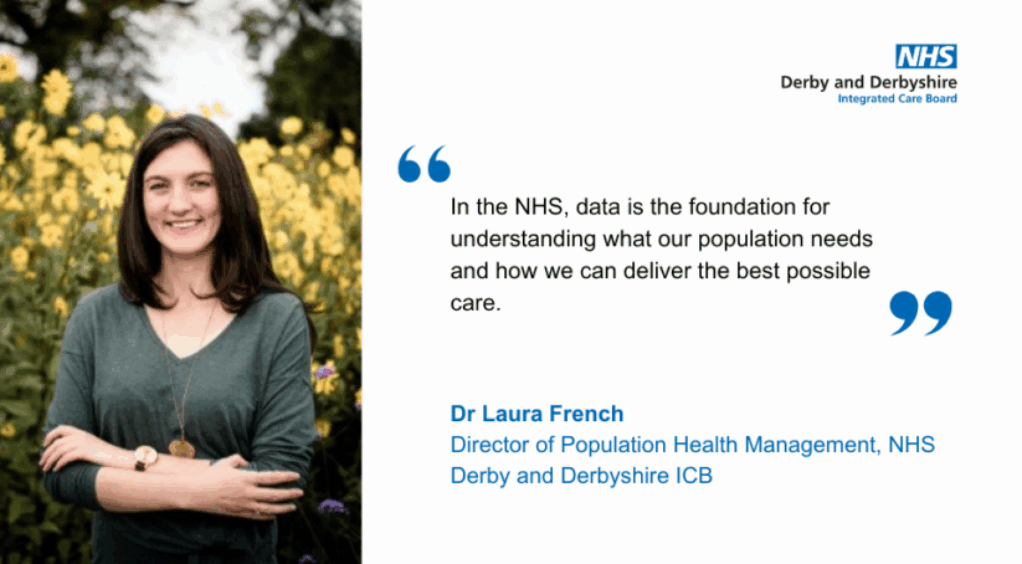Blog: how the NHS uses your data to improve care, reflections from our public session
By Dr Laura French, Director of Population Health Management, NHS Derby and Derbyshire ICB
This summer, the Government released its 10-year plan for the NHS, including an ambition to harness the power of technology to move ‘from analogue to digital’. This includes the way health services use your data to inform what we do.
The NHS in Derby and Derbyshire is on a mission to use data more effectively to improve population health and patient care.
On Tuesday 18 November, I hosted a public session to talk about how the NHS uses data and to share information about a new tool we are piloting here in Derby and Derbyshire to help us plan services more effectively.
In the NHS, data is the foundation for understanding what our population needs and how we can deliver the best possible care. Patient data can include everything from GP and hospital records to information about social care, demographics, and even whether someone smokes, or how active they are.
This data is collected throughout our lives, helping us build a picture of health needs, but it often sits in separate systems, which told part of a story, but not the whole picture.
In order to effectively spot emerging health issues and plan services effectively, we need to adopt a ‘Population Health Management’ approach. This is all about using data to improve health outcomes for groups of people, not just individuals.
In a population health management approach, we use data to divide our population into ‘segments’ by age, health conditions, or social factors, so we can then design services that work best for that group.
For example, by identifying people at higher risk of hospital admission during winter due to respiratory illness, we can prioritise ensuring that group have had their flu vaccinations or review their medications before winter to make sure they’re on the optimal dose or combination.
It also helps us address the wider factors that influence health, such as housing or employment. By bringing together data from different sources, we can tackle health inequalities, get the right care for the right people in the right places, and make sure no one is left behind.
To do Population Health Management, we needed a smarter way of bringing this data together.
Currently, we use multiple data sources and platforms, which can make it hard to get the full picture of the health of a certain population.
We are now piloting a new Population Health Management tool within a platform called the ‘Federated Data Platform’. This platform brings together data from hospitals, GP Practices, and social care into one place, and helps us see clearly where we need to target our efforts.
We are currently working through putting all the checks and balances in place so that we can access and combine this data safely, and in line with information governance law.
Whenever we talk about data, the first question people often ask is: “Is my information safe?” The answer is yes, data security and confidentiality are absolutely central to everything we do.
We follow strict rules and regulations, including GDPR and the NHS Records Management Code of Practice, to make sure your data is only used when necessary and never kept longer than needed.
When we use data for planning services, it’s anonymised or pseudonymised, so we’re looking at trends and patterns, not individual names.
In some instances, we can use data to understand who in particular might need specific interventions, in which case health providers will need to contact you. In these cases, only your healthcare providers will be able to see your identifying information.
Your choice matters too. You have the right to opt out of your data being used for anything beyond your direct care, such as research or service planning, and you can change your preferences at any time through the NHS App or online.
I’m grateful to everyone who joined us on Tuesday, asked thoughtful questions, and shared their perspectives. I have shared a link to the recording of the session, for anyone interested in listening to the whole conversation.
We are also sharing the presentation slides here.
If anyone has any further questions about this, please get in touch, ddicb.enquiries@nhs.net.

